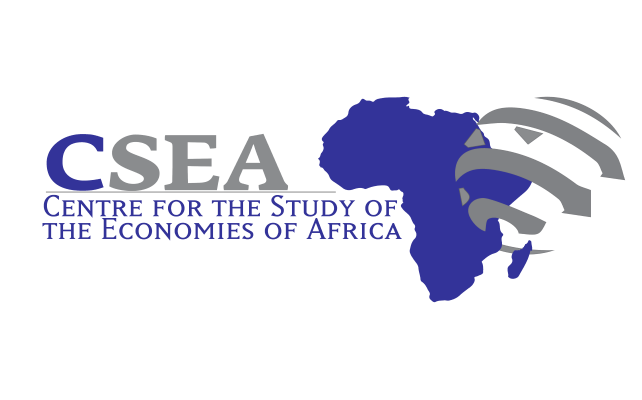
Tobacco industry interference in the DRC
In the DRC, article 113 of Framework Act n°18/035 on the Organization of Public Health prohibits any form of interference by the tobacco industry in government policy.
Historically, the tobacco industry has opposed tobacco control efforts. Article 5.3 of the World Health Organization’s (WHO) Framework Convention on Tobacco Control (FCTC) recognizes the need to counter efforts by the tobacco industry to subvert tobacco control policies.
The tobacco industry uses a multitude of tactics to shape and influence policy. It uses its lobbying and marketing mechanisms to manipulate the media, discredit proven scientific research, and influence governments to promote and distribute their products. Also, the tobacco industry in the DRC gains visibility and support through sponsorship of public events and corporate social responsibility donations.
This page provides an overview of the tobacco industry’s interference in the DRC, related to the following aspects:
- Background on industry interference in the DRC
- Tobacco market in the DRC
- Industry facts and myths
- Tactics of the tobacco industry
- Recommendations to address industry interference in the DRC
Article 5.3 of the WHO FCTC describes the interests of the tobacco industry as irreconcilable with the interests of public health. States must therefore protect their public health policies from tobacco industry interference.
Tobacco industry interference indicators are intended to measure the level of interference by the industry, as well as the responses implemented by public authorities to apply article 5.3.
Based on the WHO FCTC Article 5.3 Guidelines, tobacco industry interference in government procedures can be identified using the following six indicators:
Industry involvement in tobacco control policies
Industry involvement in tobacco control policies
The tobacco industry, through lobbying groups, has tried to influence tobacco control legislation in the DRC. Analysis of secondary data reveals a number of key findings:
For example:
In May 2022, the tobacco industry, through the Fédération des Entreprises du Congo (FEC), demanded the withdrawal of the Finance Minister’s decree implementing the excise duty traceability system (STDA), which requires tax stickers to mark locally manufactured products, imported cigarettes, and other tobacco products.
Tobacco-related corporate social responsibility (CSR) activities
Tobacco-related corporate social responsibility (CSR) activities
The tobacco industry has frequently used CSR activities to improve its social image in the eyes of the public, even though this practice is prohibited by the FCTC.
For example:
In 2011, the tobacco industry financed the renovation of a hospital pavilion and invited leaders to the opening ceremony, while in 2012, the industry donated to a pediatric sickle-cell anemia research fund during a women’s celebration in Goma.
Benefits and preferential treatment to the tobacco industry
Benefits and preferential treatment to the tobacco industry
The government may grant preferential treatment, privileges, exemptions, or benefits to tobacco industries.
For example:
In 2021, British American Tobacco’s (BAT) failure to pay excise duties for 189 imports worth $12,925,149 underscores a troubling compliance gap. This situation reflects potential preferential treatment or exemptions granted to the tobacco industry, depriving the DRC of $2,585,030 in revenue. Such benefits undermine fiscal equity and weaken the government’s capacity to enforce public health and tax policies.
Officials’ engagement in unnecessary interactions with the tobacco industry
Officials’ engagement in unnecessary interactions with the tobacco industry
This includes government accepting/offering assistance to the tobacco industry on enforcement; top-level government officials (such as president/prime minister or ministers) meeting with/fostering relations with tobacco companies and officials even when not strictly necessary for regulation; and government accepting, supporting, endorsing, or entering into partnerships or agreements with the tobacco industry.
Transparency measures and relationships with the tobacco industry
Transparency measures and relationships with the tobacco industry
The lack of transparency in relationships between government bodies and the tobacco industry, as well as the absence of procedures for monitoring interactions with the industry, is a problem in many countries and has facilitated industry interference in public decisions.
For example:
The NGO Stopping Tobacco Organizations and Products (STOP) denounced ”the tobacco industry’s deceptive strategies in Africa” and accused BAT of making dubious payments in Africa. Members of the research group found 236 ”dubious payments” made in Burundi, Comoros, DRC, Kenya, Malawi, Rwanda, Sudan, Tanzania, Uganda, and Zambia for a total of $601,502
USD (1.2 billion Congolese francs).Conflicts of interest and preventive measures
Conflicts of interest and preventive measures
Conflicts of interest arise when an individual or organization has to manage several conflicting interests, at least one of which could corrupt the motivation to act on the others. In this case, the tobacco industry’s interests conflict with those of public health policy.
For example:
The DRC has a code of ethics governing the behavior of civil servants, which unfortunately does not yet specifically incorporate the provisions of article 5.3 on interference by the tobacco industry.
Market share of tobacco companies in 2021
According to Direction Générale des Douanes et Accises (DGDA) data, BAT is the country’s largest tobacco importer, with a 62.5% market share. Other key players include SHENIMED SPRL with 34.12%, Etoile du Congo (1.96%), and DRC Duty-Free International SPRL (0.96%). Duty-free tobacco imports to the DRC were worth 90.3 billion Congolese francs in 2021. This represents a shortfall of 15.9 billion Congolese francs due to non-payment of tax.
Tobacco companies' market share in 2021
Source: DGDA 2021
The tobacco industry distorts facts to sell products.
Tobacco companies have spent decades discrediting and reframing scientific data on the health risks of tobacco products.This module shares some of the dominant myths circulating in the DRC:
Myth: The tobacco industry provides many jobs and other opportunities for Congolese youth.
Reality: The number of jobs provided by tobacco companies is not as high as some media campaigns, such as BAT’s ”Battle of Minds” competition, claim when they target students.
Myth: Second-hand smoke may bother people, but it’s not dangerous.
Reality: Article 8 of the FCTC emphasizes that exposure to second-hand tobacco smoke causes disease, disability, and death.
Second-hand smoke consists of emissions from cigarettes, pipes, and cigars, as well as inhaled substances, and contains many chemicals, including more than 50 known carcinogens.
Myth: Shisha smoking is less harmful than cigarette smoking.
Reality: Shisha smoke is very harmful to the lungs. In addition, shisha can lead to serious health problems, such as memory loss.
Myth: The tobacco industry is vital to the economy.
Reality: According to the WHO, the tobacco industry and the deadly impact of the products it manufactures cost economies worldwide more than $1 trillion (USD) a year in health expenses and lost productivity.
Myth: Tobacco growers are prosperous.
Reality: The tobacco industry lends money to smallholders for their farming activities; in the event of poor production, farmers are still obliged to repay their debts.
Globally, the tobacco industry has used a variety of tactics to interfere with the adoption and implementation of tobacco control measures. These tactics are also used in the DRC, such as:

- Maneuvering to hijack political and legislative processes;
- Exaggerating the industry’s economic importance;
- Manipulating public opinion to gain the appearance of respectability;
- Supporting activities of front groups to suppress certain facts about smoking;
- Discrediting proven scientific evidence;
- Intimidating governments with litigation or the threats of litigation;
- Deploying corporate social responsibility commitments to compromise public officials.
Article 5.3 of the WHO Framework Convention on Tobacco Control (FCTC) stipulates that public health policies on tobacco control must not be influenced by the commercial and other interests of the tobacco industry.
Law no. 18/035 of December 13, 2018, establishes fundamental principles for the organization of public health in the DRC and prohibits any form of interference by the tobacco industry. However, effective implementation measures have yet to be taken. A needs assessment report for the implementation of the FCTC by the WHO convention secretariat on the DRC in 2015
shared a number of recommendations on addressing tobacco industry interference, which are complemented here with some other recommendations as follows.The DRC should:
- not allow a person employed by the tobacco industry or an entity dedicated to promoting its interests to serve on a public body, committee, or advisory group that develops or implements tobacco control measures or public health policy;
- not accept, support, or endorse any voluntary code of conduct or instrument proposed by the tobacco industry as a substitute for legally enforceable tobacco control measures, or endorse any offer of assistance or proposal for tobacco control legislation or policy developed by or in collaboration with the tobacco industry;
- not authorize an official or employee of the state or of a semi-public or quasi-public body to accept payments, gifts, or services, in cash or in kind, from the tobacco industry;
- ensure full transparency for all interactions between government officials and the tobacco industry, including public disclosure of the nature, timing, and content of any meetings or correspondence;
- refrain from approving or supporting activities described as socially responsible by the tobacco industry, as well as from forming partnerships for these activities or participating in them;
- include provisions on tobacco industry interference in the code of conduct for public officials. It is therefore recommended that this code of conduct be updated to include the guidelines set out in article 5.3 of the FCTC.


